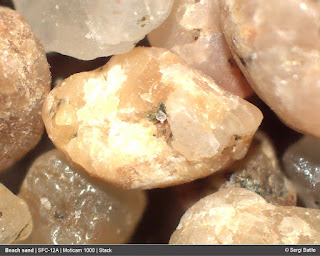Wednesday, 28 October 2015
Stuck on a mussel
It was Charles Darwin who made a detailed study of barnacles in the period from 1846 to 1854, so after his trip around the world on the Beagle, but before the appearance of his ‘Origin of Species' in 1859. By inter alia this study about barnacles, Darwin gained initial reputation within the scientific establishment of the 19th century.
The barnacle is a hardy animal that is found in or very closely to sea water. Although it is frequently confused for a mollusc because of its hard outer shell,
Monday, 19 October 2015
The Phase contrast adjustment
The Phase contrast method
The phase contrast is an illumination method to translate the reflective index or the optical thickness of the sample into a visual black and white contrast.
In the phase contrast the illumination is done through a ring shape slot, which is in correspondence to the ring inside the phase contrast objective. It is necessary a centering telescope for the correct alignment of the two rings, the rings have to be superposed.
Friday, 16 October 2015
Let us find a treasure in the sand
Wednesday, 14 October 2015
The annual rings of a tree trunk tell us a lot
The wood of deciduous trees contains numerous tracheae with large lumens, present in the annual rings. They are there for the water and fluid transport which is increasing during the growing season, because leaves, having a larger surface area, evaporate considerably more water than for example the needles of conifers. In the microscopic image, the regular arrangement of the early wood with wide lumina and that of the late wood with small lumina is striking.
Subscribe to:
Comments (Atom)




